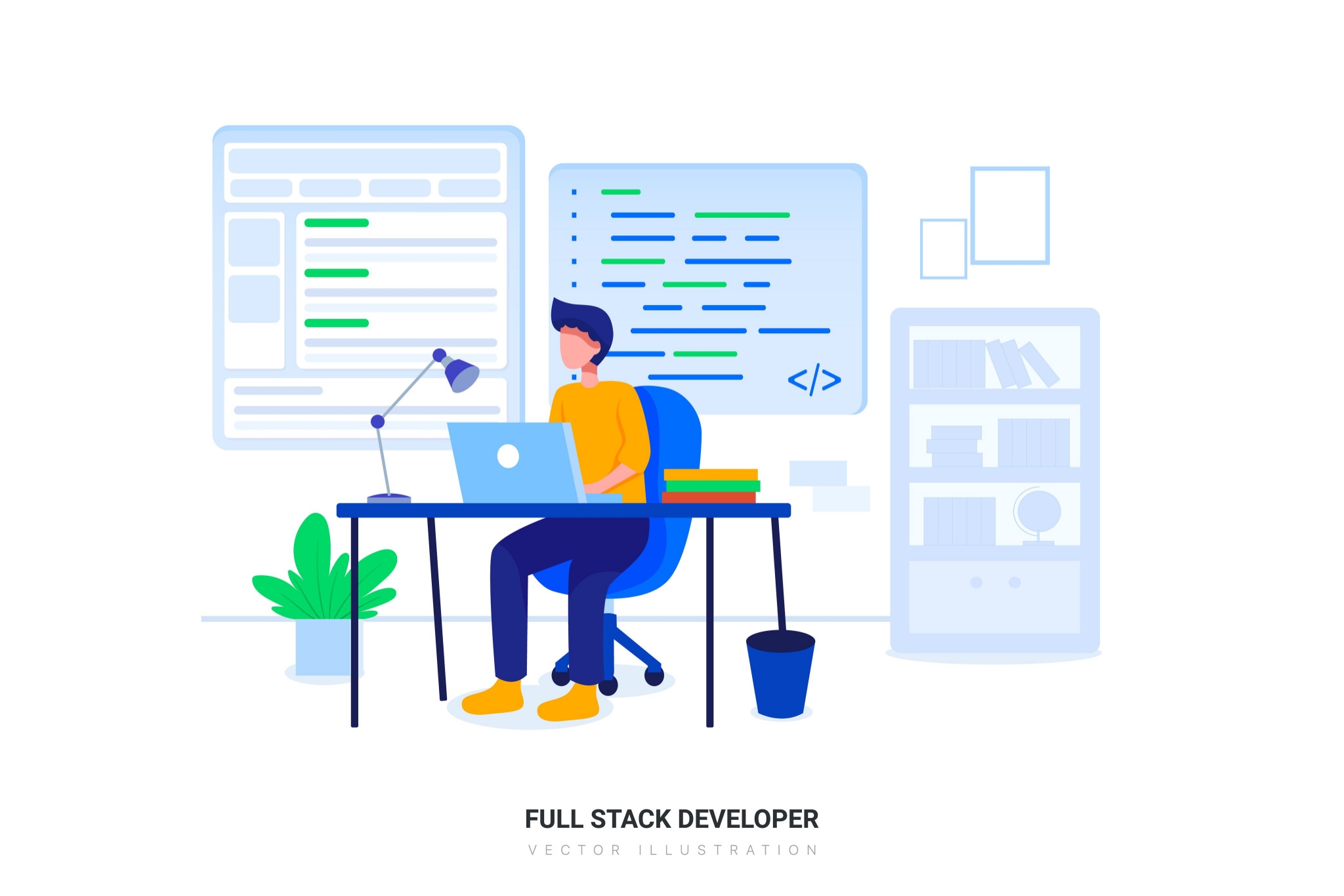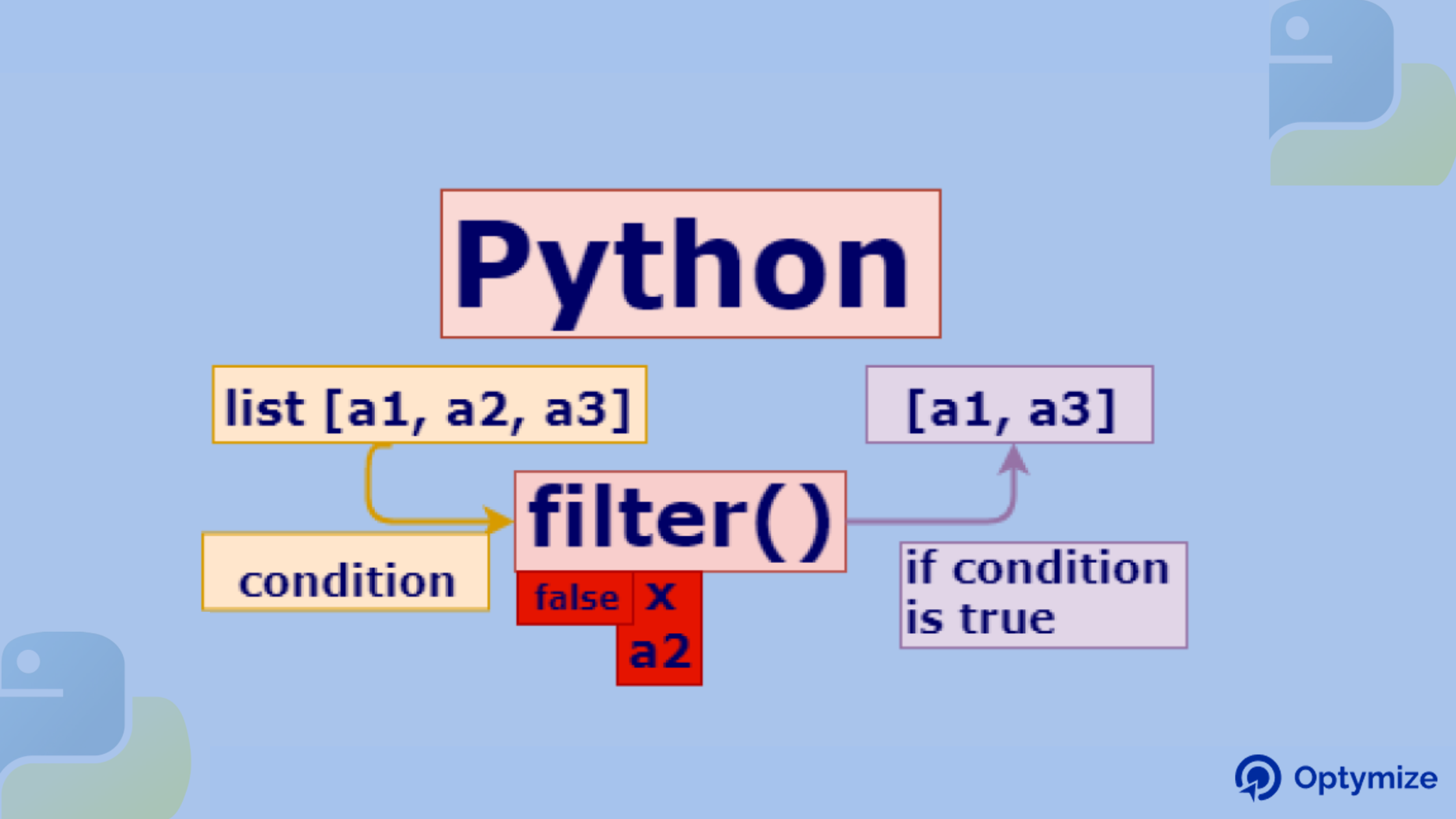Table of Contents
Introduction
Ever heard of Tesla? No, not the EV company! But the genius engineer it was named after. He was an electrical engineer, mechanical engineer, mathematician, physicist, humanitarian, and innovator. He could also speak 8 languages fluently. Such distinct knowledge gave him the title of a genius. But if he was a programmer today, he will be called a full-stack developer.
Today, technology is getting so advanced and complex that every process in software development requires a different developer. Be it database management, data analysis, web developer, front end, or backend development, we have identified more than 20 such departments and every one of these branches requires a skilled technician to develop and manage the specific projects.
Any developer with more than one of such distinct skills naturally becomes a preferred choice for industries. And a full-stack developer is just the cherry on the cake with expertise in almost all of the said arenas. So who are these full-stack developers? Why do you need to hire full-stack developers for your company? What benefits you can have? Let’s read further to know.

What Is Full-Stack Development?
Full-stack developers are highly skilled individuals with expertise in web and software development, both frontend and backend, and also data analysis. ‘Full-stack’ really stands for Full STACK of knowledge.
They have a broad spectrum of knowledge and are skilled coders in different programming languages and frameworks such as JavaScript, Java, Python, Ruby, HTML, C++, SQL, etc. This allows them to look at the bigger picture and work out almost all major problems in a software project.
Those days are gone when one needed specialization in a particular field to succeed. Today, successful engineers are experienced in a variety of fields and are still continuously sharpening their skills. The best full-stack developers can manage everything from design to testing. They can expertly multitask on all aspects of the project and see through it right to the finish.
Skills Of A Full-Stack Developer
Full-stack developers have a variety of skills that can help them manage almost every technical part of your business. A skilled full-stack developer can usually perform the following operations-
- >They can manage and analyze the project, databases, queries, servers, and technical faults.
- >They can code and develop the backend using Python and Ruby frameworks.
- >They can code and design the front end using HTML and JavaScript frameworks.
- >They can even help in data analysis, product and business design, and UI/UX design.
- >They can also test and debug codes for both mobile and web applications.
Why Hire Full-Stack Developers?
So now I believe much of the fog-related to the full-stack developers is cleared. Hiring a full-stack developer sure can be challenging, but it also has its benefits. With their skills, they can bring lots of value to the development process, can manage different departments, and handle almost every technical aspect of your project. You can completely leave the responsibilities of your project to them and can focus on other important areas.
Some of the reasons to hire full-scale developers are –
- >Creating highly scalable applications with an interactive user interface for the growth of the business.
- >Develop and update new features as per the market demands and technological advancements.
- >Can take over tasks of other departments and manage everything from conceptualization of ideas to product deployment.
- >Make sure that applications and software are well-performing, debugged, scalable, high standard, and have a quality design.
- >Can work and adapt according to the company’s methodology, and bring innovations, keep up to date with various tech stacks and agile development platforms.
When To Hire A Full-Stack Developer?
Hiring a full-stack engineer has lots of benefits as we have discussed. But is it the right choice for you? Do you really need them? How to know if they are necessary for your business or would just be a waste of money? Apart from evaluating your needs for a developer, you also have to figure out if the required job needs a full-stack developer or a specialized developer.
Let’s discuss when it is a good idea to hire a full-stack developer-
1. Prototyping
If you are a startup or a business looking to get a new product in the market, it is usually advised to build a prototype first. It is better to build a minimum viable product(MVP) and take feedback before rolling it out with a fully functional application.
For building an MVP and brainstorming ideas, Full-stack developers are your best option. They can add value to your product and help validate different ideas, cost reduction, and market expansion.
2. Product Managers
If you have a technical team already but can’t manage them properly, a full-stack developer can do that for you. They are excellent at supervising the development process considering their experience.
They know the ins and outs of the business and can provide technical assistance. Though hiring them can be expensive, so look for such full-stack developers who can be your manager without being much expensive.
3. Budget
You clearly can’t have all your budget in planning just the project development part of the business. Assigning specialized developers for each phase can become costly, especially if cost is a constraint for you. In such cases, a full-stack developer helps in curbing down the cost of multiple specialists.
Though hiring full-stack developers will still be costly but are still more budget-friendly than spending on multiple developers in a long run. However, if you are opting for this option, hire the best in business.
4. CTO
Sometimes an owner has an idea for a product but doesn’t know how to create it. The owner might know all the ways to set it up as a profitable venture but he lacks the technical expertise to make it and needs assistance. In such a case, it is a good idea to partner with a full-stack developer.
Either as a co-founder or a CTO of the company, they can help you in developing your idea into fruition. They can also help in managing the budget that will be spent in the development process.
5. Complexity
For sure you can have a full-stack developer as your manager or co-partner to manage all the technical affairs. But if you are hiring technicians, full-stack developers can be helpful in simple problems. In the case of more complex problems, having a specialized or more experienced engineer handling it should be preferred.
Things To Consider Before Hiring A Full-Stack Developer

A full-stack developer can turn your dream project into a reality but the path to hiring full-stack developers has some challenges. We got to discuss them too as, in the growing market, the demand for full stack developers stays high but only a very few percent of technicians truly fit this job profile.
This increases challenges while assessing and finding a good developer.
Some of the challenges you can incur-
1. Goals
Having a clear goal is mandatory before hiring full-stack developers. Why are you hiring full-stack developers? What part of the project will they work on? Can the work be done by other software developers? If you didn’t know the answers to such questions, you would have a hard time seeking professionals. So it’s better to sit with your managers and plan out your goals and plans related to the apps and websites and how can a full-stack developer would help you in achieving them.
Those goals could include managing the development process, consultations, building and developing a particular program or framework, testing or debugging, etc. You also need to understand the tech and languages your website demands so you don’t hire a developer who isn’t well-versed with the required tech. Having clarity will also make it easier to hire the ideal developer as you already know your requirements and can hire on that basis.
2. Experience
a) Junior Level: This is a beginner level. Developers don’t have real work experience at this level. They join most companies as trainees or interns. Even as freelancers, they can fix bugs or can write programs but cannot develop full-fledged software.
b) Middle Level: This is an intermediate level. They usually have experience of 1-2 years. They can build websites, can work with data analysis, and have familiarity with various frameworks. They might not be able to build a whole website or software, but they do know the process well and can build individual or small projects with high quality. They can even guide junior-level developers.
c) Professional Level: They are fully experienced professionals with more than 5 years of experience. They are at least completely experienced in either the front end or back end. They are usually hired as managers, senior developers, architecture developers, etc. They can take on responsibilities such as managing projects, ensuring market standards, system integration, etc.
3. Collaboration Model
When it comes to hiring Full-Stack developers, companies often look for a hiring model that fits their needs and budget.
a) Freelancer: Freelance Full-Stack Developers are skilled technicians who work remotely for specific tasks. You can hire them for consultations, coding, or any immediate tasks. Based on their experience, they can even handle complex tasks and deliver them on time.
They are usually hired for a short term and companies have no responsibilities regarding them after project completion. They can be paid hourly or depending upon the project. One benefit of them is that you can hire them from any country and can compare skills to budget before hiring.
They are usually cheaper than full-time employees, are available 24/7, and save costs on infrastructure, hardware, and training.
b) Remote Employee: Remote-based employees work like freelancers but they are employed by companies on a more permanent basis. Unlike freelancers, they will have access to many company technologies and will have to work according to company guidelines and tech stacks.
Being remote, they can be available in urgent cases, can help in brainstorming, and bring innovation. Just like freelancers, you also don’t have to spend on infrastructure, hardware, or training them. Unless they are interns or complete beginners. They can be paid hourly, weekly, or monthly and can be hired both as part-time or free-time employees.
c) In-House Developers: They are the usual 9-5 office workforce. Compared to remote developers and freelancers, they do require infrastructure and hardware to work with. They are handpicked individuals who build your core team. They do every assigned project and stay in the company for a longer duration.
Hiring them is a long and tiring process, but once done, you get a team of loyal and dedicated full-stack developers. You have full control over their work, can directly communicate any plan of action easily, and implement immediate changes faster.
4. Cost
With a huge gap in supply and demand, full-stack developers often don’t come cheap. These are different factors that can affect their cost.
a) Expertise: The price of full-stack developers varies based on their experience level. A senior developer who can build a whole software will obviously charge more while a junior developer who is still growing can charge more competitively.
b) Collaboration: The cost also affects the basis of the hiring model. You can hire full-stack developers as a freelancer, remote-based employees, and in-house. An in-house developer will charge more compared to others. While a freelancer might not be much secure option. Moreover, with in-house developers, there is an added cost of electricity, infrastructure, training, etc. which is not an issue with remote-based employees.
c) Geography: If you are opting for freelancers and remote-based employees, you might want to consider their locations. Different countries have their own rates for developers.
Country Hourly Rate
North America $65 – $100
Latin America $50 – $70
Europe $55 – $80
Africa $30 – $40
Asia $25 – $35
5. Expectations
Though full-stack developers are known for their broad knowledge but everyone doesn’t know everything. You cannot just hire any full-stack developer. What if you hire one to write a web application but the developer is more skilled in mobile-based apps? This will seriously jeopardize your business.
Moreover, some areas of development need a specialist with in-depth knowledge. A full-stack developer might not be able to go into much detail. So before you hire a full-stack developer, understand your goals and needs so that you can hire according to your requirements.
Another area you need to focus on is technology. Even though you have hired full-stack developers according to your goals but what tech will they work on? There are lots of tech stacks, agile frameworks, and libraries a developer can work with. But what specific tech does your project require? Moreover, each company has its specific tech to work on all its projects. So hire a full-stack developer according to the technology you require.
How To Hire A Full-Stack Developer
So now to the most crucial part- Hiring a full-stack developer. Now you understand why Full-stack developers are beneficial to your business and what jobs they can do for you. The next step is to hire them.
Here are a few things that can help you in the process-
1. Qualification
Firstly, the full-stack developer you will choose needs to have the required knowledge for the project. A degree is a must, but he should be proficient in the fundamentals of web development, know about the frameworks, have experience writing codes, efficient in DBMS, APIs, and other related aspects.
Should know programming languages like Java, JavaScript, Python, HTML, SQL, Ruby, etc., and frameworks related to them. Moreover, he needs to be up to date with relevant skills and keep learning.
2. Experience
Another thing to check for is how much real-life experience they have based on the job title. To know it, you can read the resume, and check the client reviews and their previous projects. Search them on LinkedIn, GitHub, and related platforms. They will help to analyze if the person is good for the job. Hire developers who have already worked on big projects and have satisfactory work experience.
3. Resume
A resume can give you a clear insight into the skills and experience of the candidate. You can get an idea about the knowledge and experience level of the candidate and can compare it with others. It can even help you round up interview questions regarding the job. Though, you should not depend totally on a resume and should check the skills yourself before hiring them.
As a resume can only indicate the skills, how much proficient they are, is another matter. It is far better if you hire from a certified hiring platform such as Optymize or Github, especially for remote workers. Optymize keeps pre-vetted developers which means you can directly hire them without going through long and complex hiring processes.
4. Technical Assessment
Well, for remote-based developers, a hiring platform can ease up the job. But you still have to go through the tiresome hiring process in some cases. This assessment will help you get quality candidates with sound technical skills. For the technical assessment, you can have them write different codes, and test for their knowledge in different arenas, logical abilities, and maybe soft skills too. It is especially important if you are hiring freshers and want to know their merits.
5. Interview
After sorting out qualified candidates from the technical rounds, an interview is also necessary to better understand them. The purpose of an interview is to look for the passion of the candidate and their abilities to handle problems. You can assess it by giving them some unfamiliar problems and seeing how they perform.
You can prepare your interview questions based on your requirements and the data you gathered about the candidate. Keep in mind that you are looking for an individual who is hard-working, patient, and has a learning attitude.
Some interview questions- - >How do you keep yourself up-to-date with the new trends and technology in the industry?
- >What according to you are the most important qualities for a Full Stack Developer to have?
- >What techniques you will use to develop a project from scratch?
- >Tell us about your last project and the technology you used. What issues you faced and how you solved them?
- >What do you like more? Management or execution?
Conclusion
Jack of all development processes, a full-stack developer has the experience and skills required to develop any mobile or web application. They are perfect to hire in your business and can bring tremendous value while being cost-effective. They can boost your development process to be faster and more profitable.
But searching for full-stack developers can be a tiresome job. Optymize can help you with that. Optymize is a marketplace platform to hire software developers. You only need to post the job requirements, and the algorithm will connect you with a list of suitable candidates. Many top clients from Fortune 500 companies have already hired developers from Optymize.
Having everything right in one place will save you a lot of time finding and interviewing various candidates. So, hire a full-stack developer now and dive into the awaiting profits.





